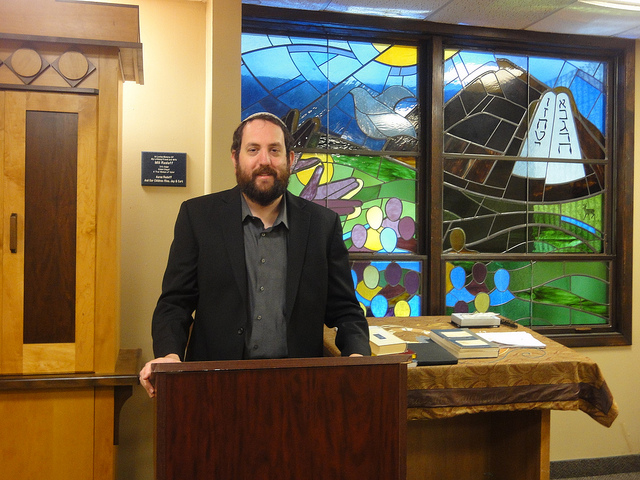Published in the New Jersey Jewish News, featuring Rabbi Bryan Kinzbrunner, chaplain at the Oscar and Ella Wilf Campus for Senior Living, republished here —
Rabbis across the denominational spectrum are opposed to a proposed state bill that would legalize physician-assisted suicide.
The proposed bill by Assemblyman John Burzichelli (D-Dist. 3) would allow doctors to prescribe lethal doses of drugs to patients who have less than six months to live.
A recent poll conducted by Fairleigh Dickinson University found that 46 percent of New Jerseyans favor the Death with Dignity Act, while 38 percent oppose the measure.
Rabbis interviewed for this article, however, say Jewish law leaves little room for persons to actively take their own lives.
“This is probably one of the few areas where there is no debate whatsoever,” said Rabbi Bryan Kinzbrunner, chaplain at the Oscar and Ella Wilf Campus for Senior Living in Somerset. “From an Orthodox viewpoint, it’s clear-cut, but I can’t imagine any rabbi saying [assisted suicide] is fine.”
Kinzbrunner, who also serves patients at the campus’s hospice, said Halacha, or Jewish law, values the sanctity of life.
“While we recognize suffering is not an ideal, we also don’t believe in prematurely ending our lives,” said the Highland Park resident. “In the hospice model, we take care of all your emotional and physical issues so you don’t have to suffer and can end your life with dignity.”
Two chaplains cited a story about Rabbi Judah HaNasi, a second-century sage whose students gathered around him, praying as he lay suffering and near death. Seeing his agony, a servant girl took a jug to the rooftop and threw it down, startling the students, who ceased praying long enough for God to take the rabbi’s soul.
Rabbi Shira Stern, who chairs the ethics committee of the National Association of Jewish Chaplains, said a modern take on the story is that while assisted suicide is forbidden, removing impediments to death are permissible.
“The students’ praying was in effect stopping the soul from leaving his body,” said Stern, who is also education director at Reform Temple Rodeph Torah in Marlboro. “Suffering is not a Jewish ethic, so people in distress need to be relieved of their pain. We can give someone a morphine drip to ease their pain, but not so much that it prevents life.
“In Judaism we have a healthy respect for life and an understanding that life and death is not in our hands. We can handle the pain, but euthanasia is considered an act of murder.”
Rabbi Ruth Gais, palliative care chaplain at Overlook Medical Center in Summit, agreed that Jewish tradition demands that patients be treated holistically to mitigate their suffering, while not hastening their death.
In the story about Judah HaNasi, “the servant girl understands the rabbi’s suffering in a way the students don’t,” said Gais, leader of the independent Chavurat Lamdeinu in Madison. The students “are only thinking in terms of their [own] suffering; they don’t want to see their beloved teacher die.”
“We need to help the person by doing what he or she wants and separate that from our needs,” said Gais. “Often the reason somebody wants to die is because their needs are not being met. We are moving away from aggressive care because we have failed to see each patient as a human being and therefore see his or her individual pain.”
Rabbi Stephanie Dickstein, a spiritual care coordinator for the Sheila Ruskay Center of the Jewish Board of Family and Children’s Services and UJA/Federation of New York, also said that Judaism supports hospice care that meets the needs of patients and their loved ones.
“The Jewish position is that we should always be aggressively caring,” said the Highland Park resident, who has Conservative ordination.
That includes making decisions in concert with physicians and other medical personnel that restore a patient’s sense of control, including ending such procedures as chemotherapy that the patient no longer feels is helping. Most rabbis would rule leniently in allowing people suffering intractable pain to passively refuse life-preserving treatments.
“I hear people say all the time, ‘He’s just giving up; he’s committing suicide,’” said Dickstein. “But, that’s not true. The patient is letting the inevitable happen. Ultimately, Judaism teaches us that life and death are in God’s hands.”

